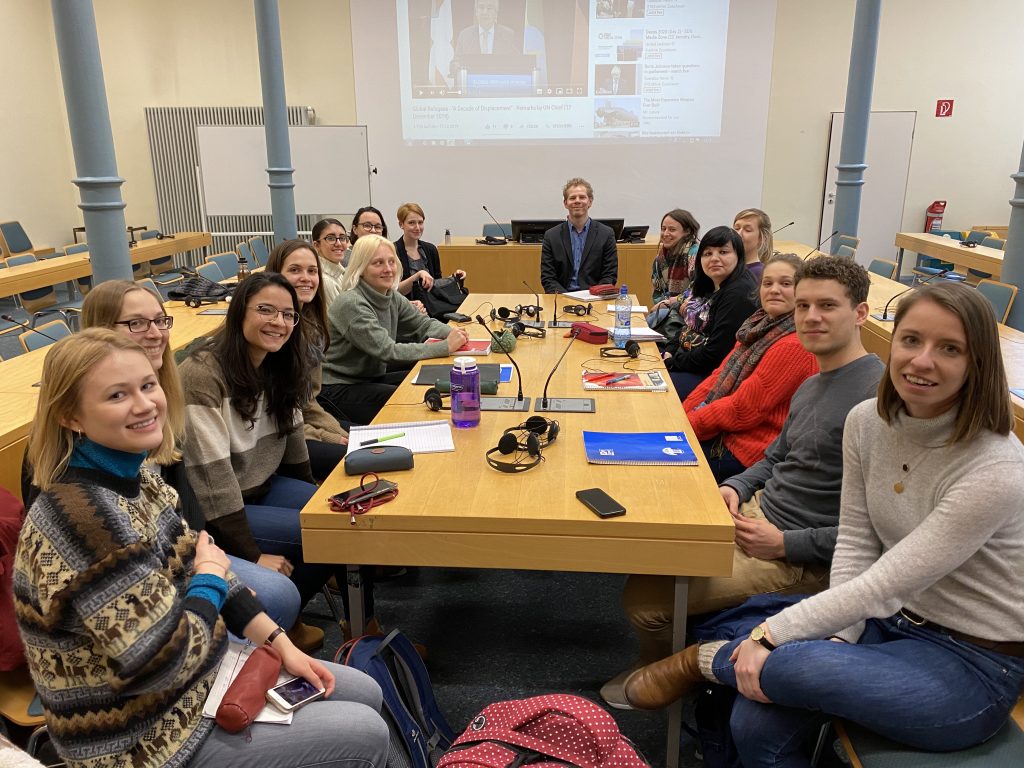Conference Interpreters work for International Institutions such as the European Union, the United Nations and the European Central Bank. They translate Heads of State and Government, ministers and opinion leaders in the limelight of international relations, technical conferences and scientific conventions.
It goes without saying that such responsibility comes with a measure of exposure as the wordings interpreters choose while thinking on their feet come under close scrutiny of the public eye.
To train responsible professionals who meet these exacting standards is the mandate which the University of Heidelberg has vested in its postgraduate master’s programme for conference interpreters.

Practicing conference interpreters train carefully selected cohorts of young talent to hold their own under the unforgiving strain of being on‐air at technical conferences, where hundreds of listeners can depend on the skill of that one interpreter who currently works the mike.
Organising vast amounts of technical terminology, scientific papers and documentation are just some of the skills involved. Seasoned professionals also re‐arrange the concepts of a speech to render the meaning clearly and succinctly in the target language. Clarity of mind is as important to a conference interpreter as is excellent command of language.
In the day and age of befuddled communication in idioms spoken as a foreign language, delegates and conference organisers increasingly use interpreters to render communication more effective and focused on content matter ‐ using communication professionals has become a hallmark of being professional.
Founded in 1930, during the early days of simultaneous interpreting, it is to our knowledge the oldest and most venerable such programme world‐wide. Likewise, it has become outstandingly successful when it comes to the success of its graduates, having trained a very large share of the professionals who work with German in their combination throughout Europe.
The University of Heidelberg’s MA in Conference Interpreting is an Ivy League international training programme. It is a springboard to careers of interpreters working for Embassies, Federal Ministries, the EU and in the Private Market, comprising eight core languages, with German, English, French, Italian, Spanish, Japanese, Portuguese and Russian ‐ most also as A‐Languages, which gives it unique international standing among similar programmes.
The course is designed by professional interpreters in the spirit of AIICs (Association Internationale des Interprètes de Conférence) core values for interpreter training, in close collaboration with the heads of interpreting at international organisations and consultant interpreters. Both syllabus and evaluation criteria are constantly fine‐tuned to meet exacting professional standards.
Moving beyond the day‐to‐day experience of professionals, the faculty of IÜD are collating their collective experience systematically in research projects: Interpreting Science today has become an established discipline in its own right, with thousands of publications.
Systematically optimising strategies, organising them into interpreting models, and learning modules make for better interpreters: at a Heidelberg University competence level.
